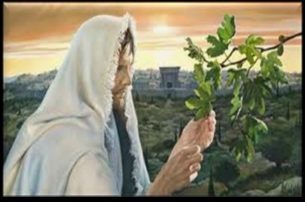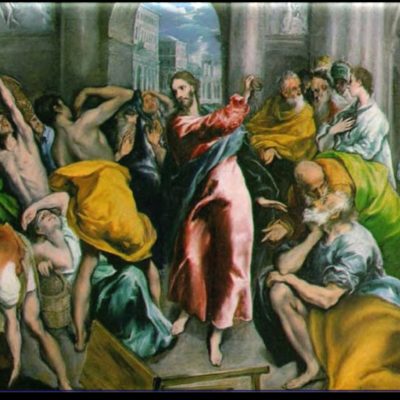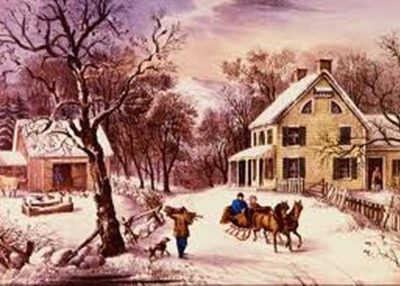The Parable of the Barren Fig Tree

This parable gives us important information about prayer and the importance of producing good fruit.
Matthew 21:18-22; Mark 11:12-14, 19-25; Luke 13:6-9
This parable found in Matthew 21:18-22 is told after Jesus went had gone into the Temple of God and cast out all those that was selling in the temple and He turned over the tables of the money changers and the seats of those who sold doves. Then He went to Bethany and lodged there.
Jesus was hungry and returned into the city. When He saw a fig tree in the way, He came to it, and found nothing on it but leaves. Jesus said; “Let no fruit grow on thee henceforward forever.” Immediately the fig tree withered away.
When the disciples saw it they marveled saying; “How soon is the fig tree withered away!”
Jesus replied that if they had faith, and did not doubt they shall not only do what Jesus did to the fig tree, but they would say unto this mountain, “Be thou removed, and be thou cast into the sea; it shall be done.”
All things, whatsoever you shall ask in prayer, believing, you shall receive.
Mark 11:12-14, 19-25 also begins after the triumphant entry of Jesus into Jerusalem where he is hailed as the King. When eventide came Jesus went into Bethany with the twelve. The next day as they were leaving Bethany, Jesus was hungry. Seeing in the distance a fig tree in leaf, he went to find out if it had any fruit. When he reached it, he found nothing but leaves, because it was not the season for figs. Then he said to the tree, “May no one ever eat fruit from you again.” And his disciples heard him say it.
When evening came, they went out of the city. In the morning, as they went along, they saw the fig tree withered from the roots. Peter remembered and said to Jesus, “Master, look! The fig tree you cursed has withered!”
Jesus answering saying; “Have faith in God. For verily I say unto you, That whosoever shall say unto this mountain, Be thou removed, and be thou cast into the sea; and shall not doubt in his heart, but shall believe that those things which he saith shall come to pass; he shall have whatsoever he saith.”
Luke 13:6-9 is the account written by Luke, the physician and is told in a little different way. Jesus tells the parable of a; A certain man had a fig tree planted in his vineyard; and he came and looking for fruit, and found none. The man said unto the dresser of his vineyard, Behold, these three years I come seeking fruit on this fig tree, and find none: cut it down; why destroy the ground?
The dresser of the vineyard answering said unto him, Lord, let it alone this year also, he gives it more care by digging around it and encouraging it to grow. Then if it bear fruit, well: and if not, then after that you shalt cut it down.
What Can Be Learned from This Lesson?
The importance of these three accounts of the withered fig tree can be better understood if we take into consideration when these parables happened. It happened during the week before His crucifixion. Jesus had entered Jerusalem when he had been given praise and was greeted as the King or Messiah who the people believed would deliver.
Matthew 21:18-22 gives us an important message about faith and prayer. Jesus said, “I tell you the truth, if you have faith and do not doubt, not only can you do what was done to the fig tree, but also you can say to this mountain, ‘Go, throw yourself into the sea,’ and it will be done. If you believe, you will receive whatever you ask for in prayer.”
Mark 11: 24-26 gives us some important information about prayer. We should desire something, and when we pray believe that you will receive them ad you shall have whatever you pray for.
When we stand praying, forgive, if you have anything against anyone: that your Father also which is in heaven may forgive you your trespasses. But if we do not forgive, neither will your Father which is in heaven forgive your trespasses.
Luke 13:6-9 serves as a warning is the account written by Luke, the physician and is told in a little different way. Jesus tells the parable of a; A certain man had a fig tree planted in his vineyard; and he came and looking for fruit, and found none. The man said unto the dresser of his vineyard, Behold, these three years I come seeking fruit on this fig tree, and find none: cut it down; why destroy the ground?
The dresser of the vineyard answering said unto him, Lord, let it alone this year also, he gives it more care by digging around it and encouraging it to grow. Then if it bear fruit, well: and if not, then after that you shalt cut it down.
Another lesson we can learn from the parable of the barren fig tree is it is symbolic of the nation of Israel. It also represents the spiritual character ruled by the LORD God’s law, rather than faith. So there is a warning here these parables are condemning Israel as a nation. Since we are adopted children, through the blood of Jesus Christ we should heed this warning especially the unfruitful “Christians,” people who profess to be Christian but have no evidence of a relationship with Christ.
We are expected to bear fruit for the Lord Jesus Christ. It is not religiosity that is important it is the fruit. Matthew 7:16-20 tells us we shall know good from evil by the fruit they produce. Galatians 5:22-23 tells us the fruit of the spirit: “But the fruit of the Spirit is love, joy, peace, longsuffering, gentleness, goodness, faith, Meekness, temperance: against such there is no law.”
Cite Article Source
MLA Style Citation:
Holstein, Joanne “The Parable of the Barren Fig Tree:.” Becker Bible Studies Library Jan 2015.<https://guidedbiblestudies.com/?p=1896,>.
APA Style Citation:
Holstein, Joanne (2015, January) “The Parable of the Barren Fig Tree:.” Becker Bible Studies Library. Retrieved from https://guidedbiblestudies.com/?p=1896,.
Chicago Style Citation:
Holstein, Joanne (2015) “The Parable of the Barren Fig Tree:.” Becker Bible Studies Library (January), https://guidedbiblestudies.com/?p=1896, (accessed).


